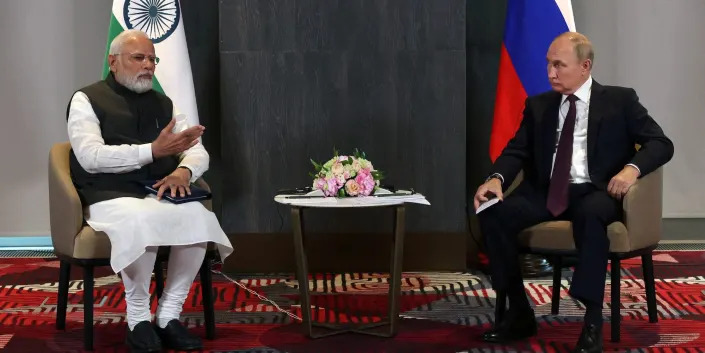Lindsey Graham’s Proposed National Abortion Ban is a Warning Shot
Jessica Washington
Fri, September 16, 2022

Photo: Antenna (Getty Images)
The war on abortion has clearly ramped up since the Supreme Court decided to overturn Roe v. Wade. And although most of the impact has been felt in conservative states, Republican Senator Lindsey Graham made it crystal clear this week that he intends to make this a national fight.
On Tuesday, Sen. Graham (R-SC) introduced the ‘‘Protecting Pain-Capable Unborn Children from Late-Term Abortions” Act. The bill, which is inaccurately labeled as regulating “late-term abortions,” bans abortion at 15 weeks. The bill makes no exceptions for the health of the fetus.
Senator Lindsey Graham’s office did not respond to requests for comment at the time of publication.
Although this isn’t the first time Graham has introduced a version of this bill, now that the constitutional right to abortion no longer exists, experts say the concept of a national ban weighs more heavily than it did before.
“We should understand what Lindsey Graham is doing with this latest version of the bill as a public statement, rather than an immediate threat to abortion access at a national scale, “ says Beth Ribet, an Adjunct Professor of Law at the UC Hastings Law School in San Francisco.
Based on the current Democratic majority, there’s no real path for this bill to pass this year, says Ribet, which means the bill will die come January.
“That doesn’t mean we shouldn’t take the threat very seriously,” she says. “It’s certainly a declaration of intention to attempt to advance a much more aggressive ban that would affect states which are not currently immediately devastated by the Dobbs decision.”
Dr. Joia Crear-Perry, an OB/GYN and founder of the National Birth Equity Collaborative, a Black maternal health and reproductive justice organization, says she doesn’t think the American people would stand for a national abortion ban.
“We are confident that if the citizens of the United States of America voted on a return to land owning white men dictating who should have and raise children instead of the person with the capacity for pregnancy... the people will vote for freedom,” says Crear-Perry.
But Congress aside, the next big question about a proposed national abortion ban is whether it could get past the Supreme Court. In the Dobbs v. Jackson decision, which overturned Roe v. Wade, the justices indicated that they were leaving the question of abortion access up to the states. But, Ribet says that wouldn’t prevent the justices from ruling in favor of a national abortion ban.
“If Congress were to pass a national ban I don’t think that the present Supreme Court would oppose that,” she says. “The Dobbs decision is silent on whether Congress could take action at a federal level.”
Emily Berman, an Associate Law Professor at the University of Houston Law Center, agrees with Ribet that the Supreme Court would likely uphold a national abortion ban.
“If I had to put my money on it, I would say yes, it’s more likely than not that the court would uphold this,” says Berman.
Another option for conservatives outside of legislating on abortion would be to get a case to the Supreme Court that would declare a fetus a person, says Berman.
“If you say that a fetus is a person entitled to the same constitutional protections as the person who has already been born, then arguably it becomes a crime to “kill the fetus,”” she says.
But like with Republicans in Congress, the Supreme Court might not feel they have the capital left to use after the Roe decision on something like a fetal personhood decision.
“Given the reaction to Dobbs… it seems to me that this is also not on the immediate horizon,” says Berman. “But I don’t doubt that there are people on the court who would love to make that the law of the land.”
Lauren Ralph, an epidemiologist and associate professor of obstetrics, gynecology and reproductive sciences at the University of California, San Francisco School of Medicine, says a 15 week abortion ban would impact marginalized communities, including Black and disabled communities, and young people, the most.
“The data is clear about who is going to be the most impacted,” says Ralph. “The people that already faced barriers to getting an abortion or have been marginalized from healthcare in general.”
According to Ralph’s research, young people and people facing food insecurity, who are disproportionately Black, are more likely to discover they’re pregnant later in their pregnancy. These groups are also more likely to face barriers to accessing abortion that push-back the time at which they’re able to access care.
Katrina Kimport, a sociologist and Professor of Reproductive Sciences at the University of California, San Francisco School of Medicine, says a 15 week national ban would also take choices away from families who discover life-threatening fetal health conditions that don’t present until later in pregnancy.
These are parents grappling with the trauma of realizing that the baby they dreamed of isn’t going to be born, says Kimport. And under this law, they’d be forced to compound that trauma by giving birth anyway.
“We’re looking at really erasing and ignoring the complex emotional experiences of pregnant people,” she says. “It’s not everyone, but it’s a subset of people who’ve already gone through something very difficult. And then what the law will do, is compound that difficulty.”
Lindsey Graham introduced a 15-week national abortion ban despite backlash to the overturning of Roe v. Wade
GOP Sen. Lindsey Graham introduced a bill that would impose new nationwide restrictions on abortion.
The bill, unlikely to pass the Senate anytime soon, comes amid backlash to the overturning of Roe v. Wade.
In the wake of that decision, a slew of Republican-led states have enacted new abortion restrictions.
Republican Sen. Lindsey Graham of South Carolina introduced a bill on Tuesday that would impose a 15-week abortion ban nationwide, despite the widespread backlash to the Supreme Court's overturning of Roe v. Wade.
The bill, called the "Protecting Pain-Capable Unborn Children from Late-Term Abortions Act," would limit how late in pregnancy a person can seek an abortion. Graham has introduced versions of the bill five times before, and in 2021, the limit was set at 20 weeks. The current version includes exceptions in cases of rape, incest or medical emergencies.
Anti-abortion advocates' use of the term "late-term abortion" to describe procedures after 15 weeks is misleading. Pregnancies are generally only viable beginning at 24 to 28 weeks of pregnancy. Though it has no accepted medical meaning, abortions later in pregnancy are generally defined as after 21 to 24 weeks.
"Abortion is not banned in America. It's left up to elected officials to define the issue," Graham said at a press conference on Capitol Hill where he unveiled the legislation. "And we have the ability in Washington to speak on this issue if we choose. I have chosen to speak."
Graham called his bill "eminently reasonable" and said a "strong majority" of Americans believe "abortion should be the exception not the rule" and would support his legislation. Graham's claims don't reflect recent polling on the issue.
A majority of Americans — about 60%, according to recent Pew polling — say abortion should be legal in some or all cases. A Wall Street Journal poll in April of this year — before the Supreme Court decision — found that 48% of Americans supported a 15-week abortion ban, including exceptions to protect the mother's health, while 43% opposed it. But another Wall Street Journal poll earlier this month found that Americans have shifted on the issue and 57% of respondents opposed a 15-week abortion ban.
Graham, who has praised the Supreme Court's decision to overturn Roe, attended the press conference alongside 10 female proponents of abortion bans, including Marjorie Dannenfelser, the president of Susan B. Anthony Pro-Life America.
The Supreme Court's June 24 ruling tossing out abortion rights has sparked widespread criticism of Republican lawmakers, who are almost uniformly in favor of restricting the procedure.
In August, voters in the deep red state of Kansas rejected a constitutional amendment that would have removed the right to an abortion from the state constitution. And Democrats, campaigning on abortion rights, have also outperformed expectations in recent special elections. Abortion has quickly become a top issue for voters heading into this year's midterms, according to recent polls. Some Republican candidates have since tried to water down their stances on abortion.
Democrats quickly seized on Graham's proposed ban. House Speaker Nancy Pelosi on Tuesday called the bill "the latest, clearest signal of extreme MAGA Republicans' intent to criminalize women's health freedom."
"With Roe now out of their way, extreme MAGA Republicans are gleefully charging ahead with their deadly crusade to punish and control women's health decisions," the top Democrat said.
The White House also weighed in, saying the "bill is wildly out of step with what Americans believe."
President Joe Biden and Vice President Kamala Harris are "fighting for progress, while Republicans are fighting to take us back," White House press secretary Karine Jean-Pierre said in a statement.
The bill also comes despite Graham's repeated insistence that abortion should be decided by states and not by the US Congress. When asked by Insider about his apparent flip on the issue, the Republican senator said he's simply reacting to Democratic legislation aimed at protecting abortion rights.
"They introduced the bill to define who they are, I thought it'd be nice to introduce a bill to define who we are," he said.
Also in May, Senate Minority Leader Mitch McConnell threw cold water on the idea of new nationwide abortion restrictions. Graham said on Tuesday that he hasn't discussed the bill with McConnell.
"I think it's safe to say there aren't 60 votes there at the federal level, no matter who happens to be in the majority, no matter who happens to be in the White House," McConnell said at the time. "So I think the widespread sentiment of my caucus is that this issue will be dealt with at the state level."
Graham's bill is virtually guaranteed to go nowhere in the Democratic-controlled Congress. If Republicans win control in November, the bill still appears unlikely to get the necessary 60 votes to pass the Senate.
After the Supreme Court overturned Roe v. Wade, a slew of Republican-led states have enacted restrictions on abortion, whereas Democratic-led states have taken steps to protect and expand abortion access. In Graham's home state of South Carolina, Republican state legislators recently failed to receive enough support to pass a total ban on abortion, instead opting to update another law that bans abortion after six weeks of pregnancy. The state Supreme Court has currently blocked that law from being enforced as litigation remains ongoing.
Ahead of the midterms, Democrats have also sought to highlight other nationally unpopular proposals put forward by Republican senators. Most recently, the White House has zeroed in on Republican Sen. Rick Scott of Florida's GOP agenda, which calls for increasing taxes on half of Americans via a mandatory income tax for all.












